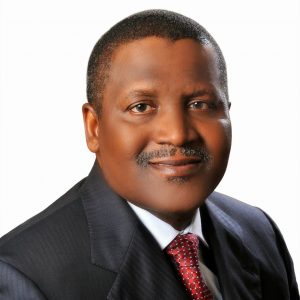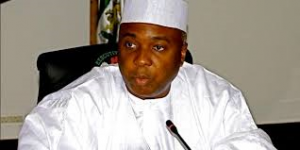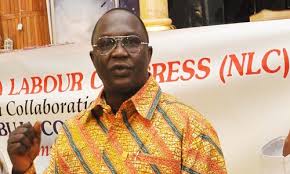The real battle for the soul of Nigeria has commenced with the sharp division between those for sale of national assets as an economic recovery strategy and those opposed to it. This division which has been overshadowed by religious and ethno-regional divisions has returned to the front burner as the economic crisis worsened, manifesting in what the Catholic Bishops Conference of Nigeria captured as “A hurricane of violence by herdsmen and other agents of death has left in its wake a landscape of blood and destruction. Political violence, corruption, kidnappings, armed robbery, ritual murders and all ills of the past, are still very much present and we seem to be progressively sinking deeper into the mud. Our people are now ravaged by disease and hunger. The result is the rise in the curve of violence both by the state agents and non-state actors among our own people”. That comes from its communiqué at the end of its conference in Akure, Ondo State, last week.
Noted for maintaining a safe and healthy distance between itself as a group and the state and for its members’ attribute of speaking their minds, the position of the Catholic Bishops must have struck a far more ringing chord. The mellowing impact of the language and the penetrating force of the logic combined to make the communiqué a different type of critique of what is on the ground. What is on the ground cannot but be President Buhari’s new found tendency of implementing ‘SAP’ far in excess of what anybody before him ever did, (electricity tariff, fuel subsidy, etc), as well as by the exclusionary implications of messianic diagnosis. That has subsequently aggravated the material conditions of life, compelling majority of Nigerians to seek for meaning of life in some of the strange acts of violence the Catholic Bishops brought to the fore.
In the event of the current phase of the crisis fancifully called recession, all the elite circles are articulating solutions, a process in which the current division has manifested. Players such as Aliko Dangote and Bukola Saraki, the Senate President push an option, the high point of which is sale of state assets. The Nigeria Labour Congress and its numerous stakeholders in the civil society, academia and even among politicians are saying no to sale of state assets, pointing out that it is that strategy pursued since the 1990s that has brought the crisis in the first place.
Dr Peter Ozo-Eson, the General Secretary of the Nigeria Labour Congress, for example, is saying that the experience from the privatisation of the power sector should show that such strategy would only compound the crisis. Not only has the sale of assets since the 1990s not worked, it is a roadmap to cronyism, the labour leaders are saying. In other words, there is fear that advocates of further privatisation would use the crisis as a pretext to buy those assets. In any case, they are the ones with the capital/cash power to do so. A sustained opposition led by labour has the capacity to shake up elite power giving the subsisting class disarray as the crisis deepened.
Buhari who struggled for power for over a decade is no longer sure of how best to run the country. He has shifted from what he appeared to believe in and which made him popular while he has not mastered whatever new rule book he now subscribes to. Former President Obasanjo, a key force in the coming of Buhari, is crying aloud that Nigeria is more fractious now than ever before. Being in a position to see the problem in such a situation, he must be recognising that something has gone wrong somewhere. Jonathan at whose prompting the PDP governors installed Modu Sherriff is the one running from one corner to the other suing for reconciliation. Bukola Saraki who has been embattled is now raising the stakes in leadership through an intervention package that must have benefitted from inputs wider than Buhari’s even as problematic as his option can be. All the calculations that underpinned the Buhari presidency by the consortia of brokers who brought it to be seem to be up for re-working. The way the economy is managed would remain at the heart of such re-working. Otherwise, the call for restructuring which major stakeholders have bought into could get out of control, although there are as many different meanings as each user of the word so far. It has been a long way to this point.

Aliko Dangote

Bukola Saraki

The ‘god of fire’ that is still bringing darkness even with privatisation

Ayuba Waba,NLC Leader
In 1992, General Ibrahim Babangida wondered aloud how come the economy had not collapsed. It must have been a classical slip of tongue. Someone answered back and said it has not collapsed because much of what is called the economy in Nigeria has very little to do with majority of the Nigerians. That was in the 1990s. about three weeks ago, the BBC carried the report of a research that agreed with that position because the research said, in part, that majority of the Africans have very little to do with the formal sector, not only with regard to the economy but system wide. In other words, their survival is not so dependent on the dynamics of the economy. Rather, the religious, ethnic/town/village meetings and other group activities help the ordinary African more than the social order. Health challenges, borrowing money among group savings, facing the challenge of burial of parents, in laws and so on are better met by the in-group platforms than any institutional arrangements in the formal system. So, IBB must have wondered on the basis of a situation he could observe.
Those who watched AIT News at 8 pm on September 11th, 2016 might have taken note of the leader of a women group who was pontificating that the way out of the recession is the women. She said it is the women who actually run the economy. That was something to think about because, if she is correct, then a strategy of selling state owned assets stands interrogated. After all, the essence of such a strategy is that the nation would benefit by way of (foreign) investors who would bring capital, expertise and technology. After two and a half decades of privatization, nothing of that has been seen. Instead of that, what people have seen is investors who mobilize cash from local banks, use the same set of staff, (as in NEPA) and barely brought any new technologies but ground these companies in a way that the government of Nigeria must spend more money in litigation to recover them, totally humiliated, as in the case of the Ajaokuta Complex.
So, the economy in Nigeria is comparable to a situation whereby the people are told that a road journey to Lagos from Abuja must reach Yola before they can get to Lagos. They shout and cringe at the illogicality of doing the journey that way but they are told it has to be so. Since the early 1990s, they are still on that journey, distressed, overwhelmed and degenerating into conditions in which many would do anything just to get by. But the drivers still insist that is the only way the journey can be made. The danger now is that they themselves have started calling for restructuring, a process which they can equally and easily lose control of. That would trigger an implosion of imponderable consequences as far as the final (self) – humiliation of the black man and woman is concerned.
The Nigerian ruling elite is a comparatively very sophisticated one, very successful in crafting statehood. The question is why it lacks a collective will towards rapid economic transformation of the country which would claim for it in the most rapid way the membership of the global power kitchen. It is a bit difficult to understand. In 2006, Professor Charles Soludo rated the country as the next one to shock the world the way China did. In the context of the current recession, he is blaming state interventionism, “Exchange rate and crude capital controls, i.e. confusing trial and error of tried and failed neo-socialist command and control policy regime of 1960s- mid 1980s”. What did Nigeria do in the 1960s – mid 1980s that China has not done between 1978 and 2008? By 2008, China was basically the rescuer of the world from the financial crisis which Soludo’s economic model plunged the world. It is from the pedigree of that intervention that China’s tangible and intangible powers in the G20 rests today. In other words, the main difference between China’s success and Nigeria’s failure is that the Chinese had the political will to allow history to instruct them when you want to move a society from an agrarian to a modern formation. All such societies must engage with an economic equivalent of reverse engineering. Otherwise, how could Germany have overtaken the rest of Europe in the second half of the 19th century despite being a late comer? Germany looked inward, just as China did, although, in truth, the China strategy was a curious amalgam of models but over which the statist option presided.
And the lesson of the 21st century is that without the state, there can only be anarchy. Capitalism itself has completely collapsed. It is state subsidy that is sustaining it everywhere. So, when the leading lights of an African country such as Nigeria keep talking about selling state assets, implying preference for capitalism, they are running away from historical responsibility of providing leadership for the great transformation someone like Soludo idealized but is not willing to push its realization. Deregulate by all means but run a state that can supervise this in a disciplined way. Rather, they all want a cheap and less arduous way of becoming by grabbing state subsidy. That would leave nothing for others such as the workers and the peasants. The problem with that is that we would remain in the conditions which the Catholic Bishops have captured very powerfully in the entire communiqué. It is those conditions which explain why it is ‘the war of all against all’. And as may be aggravated by the Buharis whose practice of state power has not led to a massive programme of national rebirth, who has not rallied the people around confronting corruption that has “destroyed the very foundations of our society”, whose “one-sided appointments into public office” thereby displaying “a tendency towards a form of sectionalism that we have found difficult to associate with the high moral credentials of the President”.





























1 Comments
Willie Eselebor
Congrats for the insightful presentations. It is balanced and objective. However, the capitalist are at again. We must maintain strong vigil, if not Nigeria is on sale and my children will have no right to inheritance in the future?